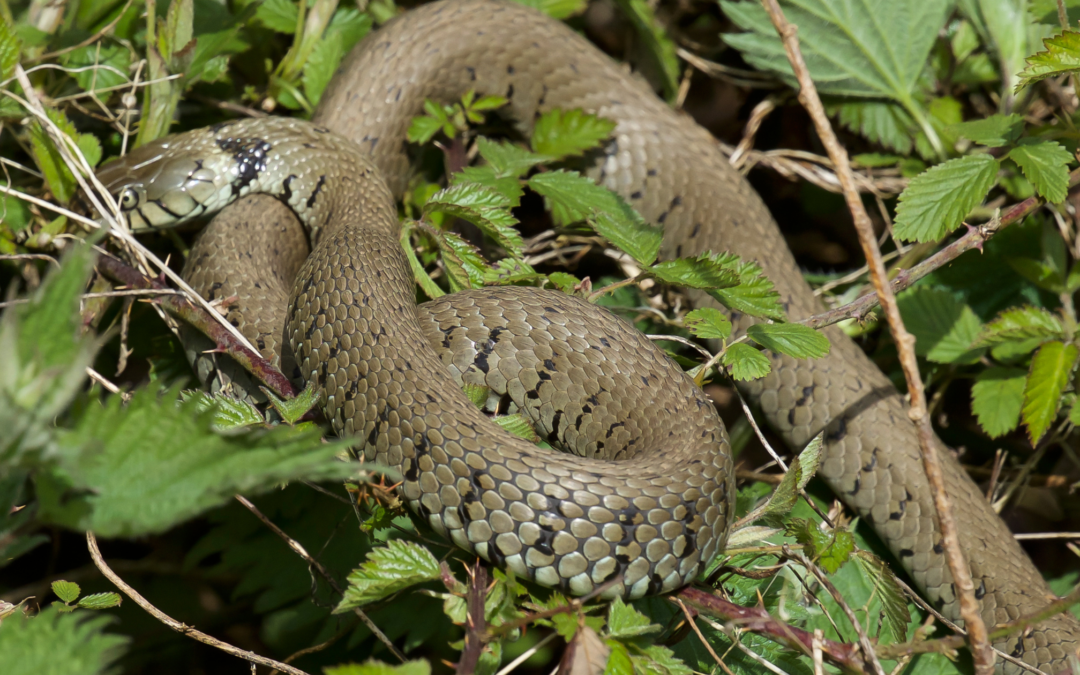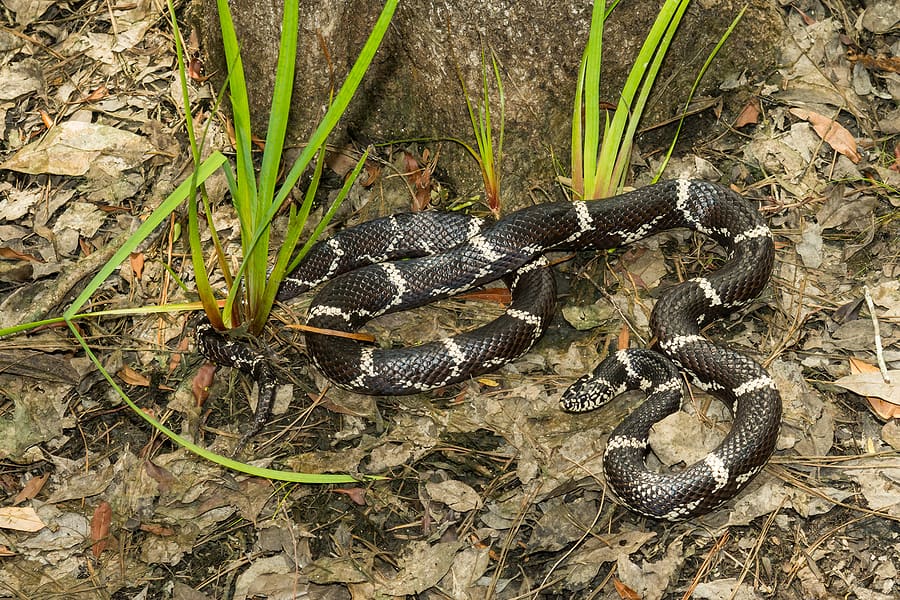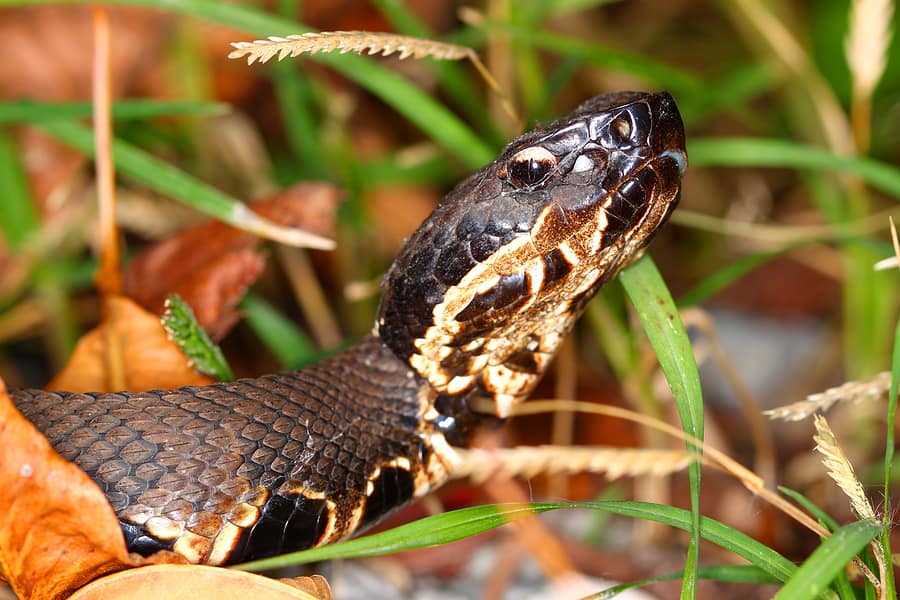READY TO GET STARTED?
REQUEST A FREE ESTIMATE
Fill out the form below or call (888) 466-7849 for a free, no-obligation estimate.

If you live in Georgia, you know that the state’s warm climate and diverse ecosystems are home to a variety of wildlife, including snakes. Encountering a snake in your yard or home can be unsettling, but knowing how to handle the situation safely is crucial. This guide will provide you with essential information on what to do if you come across a snake, how to identify venomous and nonvenomous snakes in Georgia, how to practice safe snake removal, and prevent snakes from entering your property.
Georgia is home to both venomous and nonvenomous snakes. Here are key identifiers:
If you’re dealing with a snake problem and need professional help, search for “snake removal near me” to find a trusted wildlife control company in your area. These experts can safely and humanely remove snakes from your property and provide advice on preventing future encounters.
Encountering a snake can be a frightening experience, but with the right knowledge and precautions, you can handle the situation safely. Remember to stay calm, keep your distance, and contact professionals for help with snake removal. By taking steps to prevent snakes from entering your property, you can reduce the likelihood of future encounters. Stay vigilant, and don’t hesitate to reach out to wildlife control companies for expert assistance in managing your snake problem.

As the weather warms up in Georgia, so does the activity of one of the area’s most misunderstood creatures: snakes. With snake season approaching, it’s essential to take proactive steps to ensure your yard is prepared for these slithery visitors. Whether you’re concerned about encountering venomous species or simply want to minimize their presence around your home, proper preparation and understanding are key. Here’s everything you need to know to get your yard ready for snake season:
Snake season in Georgia typically begins in the spring, around March or April, and extends through the summer months until around September or October. During this time, snakes become more active as they emerge from hibernation and seek food, mates, and suitable habitats.
Georgia is home to a variety of snake species, both venomous and non-venomous. Some of the most common snakes you may encounter include:
While most snakes in the region are harmless and play a vital role in controlling rodent populations, it’s essential to be able to identify venomous species and exercise caution when encountering any snake.
Whether you’re gardening, hiking, or simply enjoying time outdoors, it’s crucial to practice snake safety to minimize the risk of encounters. Here are some tips to keep in mind:
While it’s impossible to completely eliminate snakes from your property, there are steps you can take to make your yard less attractive to them:
If you’re concerned about snakes or other wildlife on your property, don’t hesitate to reach out to a professional pest control company near you for assistance. Our team of experts specializes in humane snake relocation, snake control, and wildlife management services tailored to your specific needs. Request a free wildlife control quote today and enjoy peace of mind knowing your yard is in good hands.
As snake season approaches, taking proactive steps to prepare your yard can help minimize encounters and ensure a safe and enjoyable outdoor experience for you and your family. By understanding common snake species, practicing snake safety, and implementing effective deterrents, you can create a snake-friendly environment that strikes a balance between coexistence and control.

When it comes to living in the beautiful state of Georgia, there’s no denying that the warm climate and lush landscapes come with their fair share of wildlife encounters. One of the most common and, for many, dreaded encounters is with snakes. While Georgia is home to a variety of snake species, understanding snake control, prevention, and removal techniques is essential for safeguarding your property and your loved ones. In this blog post, we’ll explore common snakes in Georgia, when snake season typically occurs, and effective ways to keep these slithering neighbors at bay.
Before delving into snake control methods, let’s familiarize ourselves with some of the common snake species found in Georgia:
Snake season in Georgia typically begins in the spring and lasts through the fall. During this time, snakes become more active as they search for food and suitable breeding grounds. It’s essential to be especially vigilant during these months to reduce the likelihood of unwanted snake encounters.
Now that we’ve discussed common snakes and their active seasons, let’s explore effective snake control and prevention techniques to protect your home and family:
While preventing snake encounters is the first line of defense, it’s also crucial to know how to protect yourself from snake bites:
The importance of effective snake control and removal cannot be stressed enough. While Georgia’s natural beauty and warm climate make it an attractive place to live, it’s essential to be prepared for encounters with snakes. By following these snake control and prevention tips, you can create a safer environment for your family and minimize the chances of unwelcome snake guests. Remember that professional assistance through your local pest control company is just a phone call away if you ever need help with snake removal or control. Stay vigilant, stay safe, and enjoy all that Georgia has to offer!

As the weather cools off and fall peeks around the corner, many people are taking advantage of the milder weather and spending more time outside. Unfortunately, many pests and wildlife, including snakes, are also enjoying the milder weather, preparing for the impending winter. Although most snakes encountered in Georgia are nonvenomous, there are a few species of venomous snakes to keep an eye out for. These include the copperhead, the timber rattlesnake, the cottonmouth, the eastern diamondback rattlesnake, the eastern coral snake, and the pigmy rattlesnake.
When spending time outdoors, keep an eye out for snakes in backyards, parks, and areas near the woods. They also like to frequent areas that border streams, lakes, swamps, and ponds. Snake season begins in the spring, usually March to April. Snake season doesn’t end until late fall or even winter, depending on weather patterns and where you’re located. Snakes in the southern states will stay active much longer than up north where the cold sets in sooner.
If you run into a snake, keep these tips in mind:
Because snake season hasn’t quite ended yet, it’s still important to take precautions when spending time outdoors. It’s best to leave snake removal to the professionals, especially if you aren’t sure what type of snake you’re dealing with. If you have a problem with snakes or any other pests, contact your local pest control company for proper identification and safe elimination of the offending creature.
Two Reasons You’re Attracting Termites
5 Common Ways to Attract Cockroaches
Preventing a Mosquito Infestation